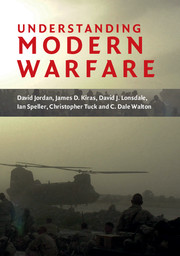Transcript
Since the end of the Cold War, American military superiority has been an undeniable fact. But this superpower dominance is not the norm in world affairs. With the rise of China as a ‘peer rival’ of the US, are we seeing a return to a more contested ‘business as usual’ ? And if we are, what are the implications?
In this podcast, Pod Academy’s Craig Barfoot speaks to Dr Ian Speller, co author of Understanding Modern Warfare (Cambridge University Press 2008, £25.99) about various developments in naval capability, and in particular the naval aspects of China’s resurgence. China is expanding its navy, and although Washington sees this as a threat, the Chinese themselves say any developing country would want to build up its sea power (given that historically threats to China have come from the seas, it is perhaps understandable that they would feel this way).
But for now, the US navy fleet has greater capability than all the rest of the world’s fleets put together. This fleet is deployed in international waters as ‘protector of the global commons’, and it is not uncommon for fleets from different nations to meet and acknowledge each other in international waters. But as global politics, and economic power, evolve and change – how long will this situation continue?
Dr Ian Speller is a Lecturer in the Department of History at the National University of Ireland, Maynooth. He also lectures in defence studies at the Irish Defence Forces Military College and in maritime strategy at the UK Defence Academy and at the National Maritime College of Ireland. He is the author of The Role of Amphibious Warfare in British Defence Policy, 1945-56 (2001) and the editor of The Royal Navy and Maritime Power in the Twentieth Century (2005).
Our podcast explores aspects of modern naval warfare, but Understanding Modern Warfare also looks at
- Strategy
- Land warfare
- Air and space warfare
- Irregular warfare
- Weapons of mass destruction
Dr Speller is one of a number of co-authors, the others are:
- David Jordan, King’s College London
- James D. Kiras, School of Advanced Air and Space Studies, Maxwell Air Force Base, USA
- David J. Lonsdale, University of Reading
- Christopher Tuck, King’s College London
- C. Dale Walton, Missouri State University
If you have enjoyed this podcast you may also be interested in one or more of the following podcasts:
- Empire: the features of American global power
- The East India Company and its legacy
- Divided Nations: global challenges, global governance
- UN in DRC 2: The challenges of the UN’s new offensive approach
Tags: China, Modern warfare, Naval power, United States


Subscribe with…